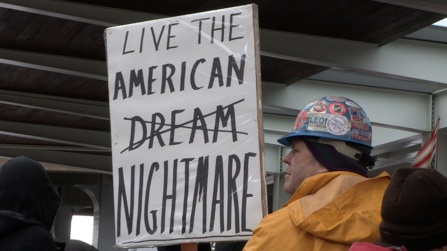Announcing the Winners of the 2013 Hillman Prizes in Journalism

The Sidney Hillman Foundation announced today the winners of the 2013 Hillman Prizes, awarded to journalists whose work highlights important social and economic issues and helps bring about change for the better.
This year, Hillman judges recognized stories about solitary confinement, the food system and the working poor, the far-reaching influence of the chemical and tobacco industries, the environmental impact and human toll of the global population boom, lead contamination in our neighborhoods, the campaign for marriage equality and the tragic garment factory fires in Bangladesh.
A special Hillman Officers’ Award will be presented to Bangladesh garment workers in memory of the late Aminul Islam, a garment worker and labor organizer with the Bangladesh Center for Worker Solidarity who was detained, beaten and later murdered – apparently an effort to quash efforts to improve fire and building safety in clothing factories that produce many American brands, including WalMart, Sears and The Gap.
The 2013 Hillman Prize winners are…
Book Journalism: Tracie McMillan, “The American Way of Eating: Undercover at Walmart, Applebee’s, Farm Fields and the Dinner Table,” Scribner.
Newspaper Journalism: Patricia Callahan, Sam Roe and Michael Hawthorne, “Playing With Fire,” Chicago Tribune.
Magazine Journalism: Shane Bauer, “No Way Out: A Special Report on Solitary Confinement from Former Hostage Shane Bauer,” Mother Jones/The Investigative Fund at the Nation Institute.
Broadcast Journalism: Brian Ross, Matthew Mosk, Rhonda Schwartz, Cindy Galli, “Tragedy in Bangladesh” ABC News.
Photojournalism: Rick Loomis, “Beyond Seven Billion,” Los Angeles Times.
Web Journalism: Alison Young and Peter Eisler, “Ghost Factories,” USA Today.
Opinion and Analysis Journalism: Andrew Sullivan, The Dish.
Sol Stetin Award for Labor History: Marcus Rediker, Distinguished Professor of Atlantic History, University of Pittsburgh.
Hillman Officers’ Award for Public Service: Garment workers in Bangladesh in memory of Aminul Islam
We will present these prizes, awarded every year since 1950, at a ceremony and reception at The Times Center in Manhattan on Tuesday May 7, 2013.







